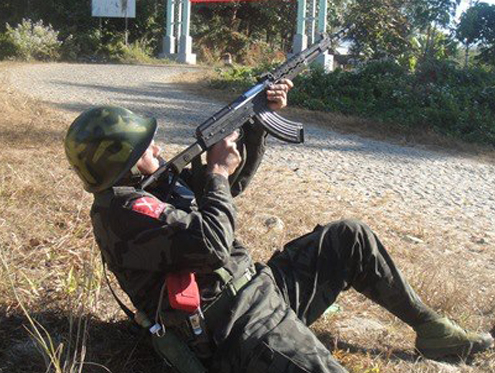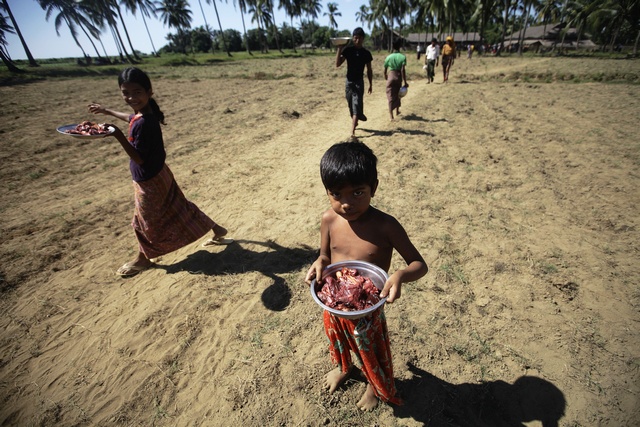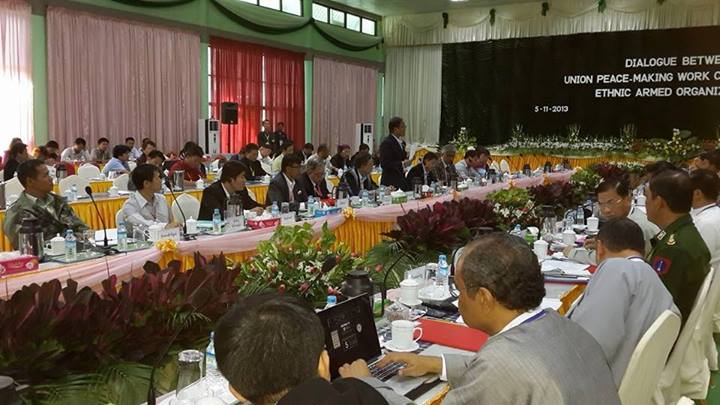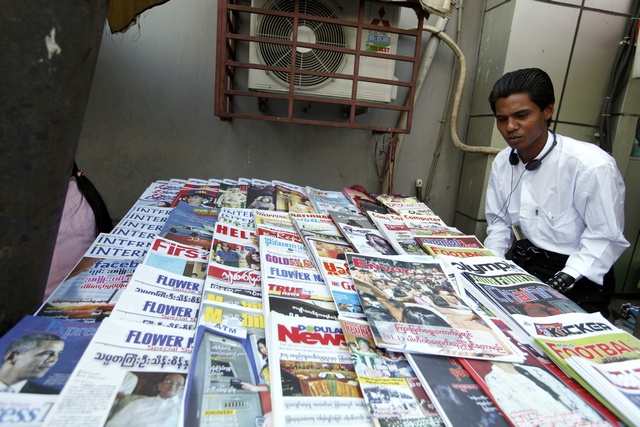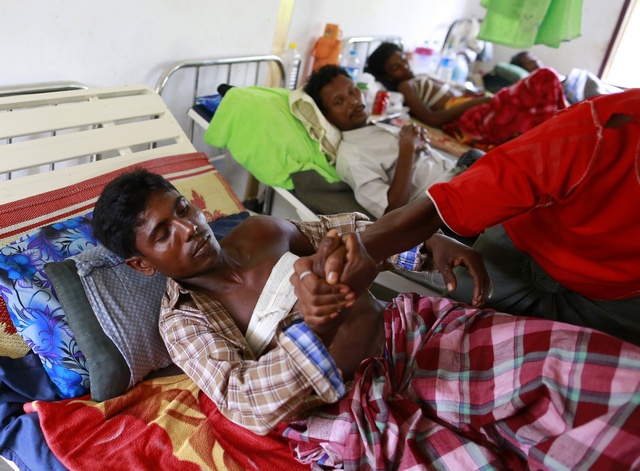Médecins Sans Frontières (MSF) has slammed the “politicisation” of humanitarian aid in Burma’s Arakan state, after an outburst of local protests reportedly forced the group to suspend some of its operations.
It follows accusations that the NGO displayed “bias” by taking three injured Muslims to hospital during the latest eruption of communal clashes to grip the state, while three Buddhist women had to seek medical treatment on their own.
The Burmese government subsequently gathered 18 leading international NGOs and UN agencies on Monday to remind them that all assistance must be distributed fairly.
But a spokesperson for MSF on Tuesday denied allegations of bias, insisting all assistance is provided in coordination with the local authorities and based on patients’ medical needs.
“Since June last year, MSF and other humanitarian organisations have and continue to experience a great degree of hostility from elements within the local community,” said Vickie Hawkins, MSF deputy-head for Burma. “MSF is outraged that healthcare in Rakhine [Arakan] is being politicised in this way.”
She explained that MSF had been contacted by leaders at the Sintatmaw Rohingya displacement camp in Pauktaw, two hours northeast of the state capital Sittwe, on Saturday after a confrontation between residents and local police left three people injured, one of whom later died in hospital.
“With the approval of the state health authorities, MSF referred the patients,” she said, adding that they later heard about another incident in which three Buddhist women, who had been among a group attacked by Muslims in Pauktaw, travelled to Sittwe hospital for treatment.
“At no point was MSF contacted by leaders from the host community or local authorities to assist with the transfer of these patients,” said Hawkins. “If we had been contacted, MSF would have been very ready to provide emergency medical care and referral services.”
The attack on the Buddhist women, which killed one, was reportedly carried out to avenge an earlier episode of violence, which claimed the life of at least one Rohingya man and sparked the confrontation at Sintatmaw camp.
Arakan state has been gripped by several bouts of Muslim-Buddhist clashes since last year, uprooting over 140,000 people and claiming some 200 lives. Local Buddhists, many of whom regard the Muslim Rohingyas as illegal immigrants from Bangladesh, have repeatedly accused aid groups of unfairly favouring the minority, even though the Rohingya community has borne the overwhelming brunt of the violence.
A spokesperson for the UN in Rangoon told DVB that all humanitarian groups are guided by universal principles of “neutrality, impartiality and independence”.
[related]
“Humanitarian organisations provide assistance to vulnerable people in need wherever they are found regardless of social groupings such as ethnicity, nationality, religion, gender or class,” said Aye Win. “In the current situation in Rakhine state, the unfortunate fact is that the people most in need tend to be from a certain ethnic group.”
Rohingya make up the majority of the displaced and have been confined to squalid camps, with limited access to food, healthcare and sanitation, which they are not allowed to leave, unlike Buddhists who can travel freely.
“It would also be relevant to point out that in 2010, the same humanitarian organisations provided emergency assistance to Rakhine communities affected by Cyclone Giri,” said Aye Win, referring to a natural disaster which devastated the region three years ago.
Last month, the UN warned that vulnerable communities displaced by last year’s violence would run out of food by the end of the year unless a US$13 million shortfall could be filled.
But Buddhists have staged numerous protests against aid groups working with the Rohingya, sometimes forming physical blockades or threatening staff. According to a report in The Irrawaddy on Monday, MSF has been forced to suspend their medical operations in Sittwe following this week’s incident.
“MSF is ready to transfer any patient that needs hospital services and we call on community leaders and local authorities to seek our support for any emergency case that the government is not able to transfer themselves,” said Hawkins.


